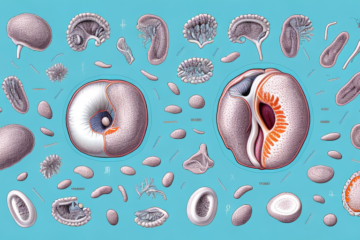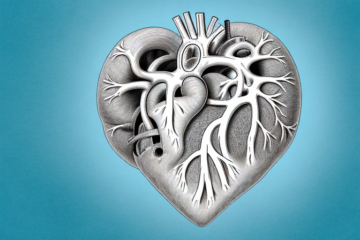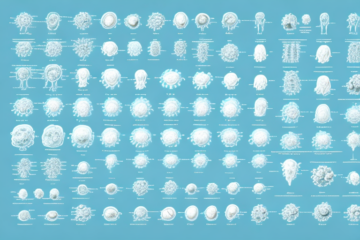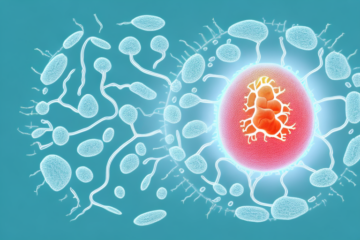For many women, vulvar dermatitis can be an uncomfortable and frustrating condition that affects daily life. Vulvar dermatitis is a common skin condition that can cause itching, burning, redness, and irritation in the vulva area. In this article, we will explore the various aspects of vulvar dermatitis, including its symptoms, causes, treatment options, and more.
What is Vulvar Dermatitis and How Common is it?
Vulvar dermatitis is a term used to describe any type of inflammation or irritation in the vulva area. This is the skin surrounding the vagina and includes the labia, clitoris, and vaginal opening. Vulvar dermatitis can affect women of all ages and is a condition that is seen frequently by gynecologists and dermatologists. However, many women may feel embarrassed or uncomfortable discussing this condition with their healthcare provider.
There are several factors that can contribute to the development of vulvar dermatitis, including allergies, infections, and skin irritants. Some common irritants include soaps, detergents, and feminine hygiene products. In addition, certain medical conditions such as eczema and psoriasis can also cause vulvar dermatitis.
Symptoms of vulvar dermatitis can include itching, burning, redness, and swelling in the vulva area. Treatment options may include topical creams or ointments, antihistamines, and avoiding irritants. It is important for women to seek medical attention if they experience persistent symptoms or if they have concerns about their vulvar health.
Types of Vulvar Dermatitis and Their Symptoms
There are different types of vulvar dermatitis, each with its own set of symptoms. The most common types of vulvar dermatitis include contact dermatitis, atopic dermatitis, and irritant dermatitis. Contact dermatitis is caused by an allergic reaction to something that has come into contact with the vulva area, such as perfumed soap or laundry detergent. Atopic dermatitis, also known as eczema, is a chronic condition that causes itching, redness, and scaling of the skin. Irritant dermatitis is caused by exposure to irritants, such as urine or feces, which can cause redness, burning, and itching.
In addition to these types of vulvar dermatitis, there is also a rare condition called lichen simplex chronicus. This condition is characterized by thickened, leathery skin in the vulva area, which can be extremely itchy and uncomfortable. It is often caused by chronic scratching or rubbing of the area, and can be difficult to treat. If you are experiencing any symptoms of vulvar dermatitis, it is important to see a healthcare provider for an accurate diagnosis and appropriate treatment.
Causes of Vulvar Dermatitis: Understanding the Triggers
There are several triggers that can cause vulvar dermatitis. Some of the most common triggers include allergic reactions to chemicals found in soaps, perfumes, or laundry detergents, tight-fitting clothing or harsh fabrics, and exposure to irritants such as urine or feces. Hormonal changes related to menopause can also increase the risk of developing vulvar dermatitis.
In addition to these common triggers, certain medical conditions can also contribute to the development of vulvar dermatitis. These conditions include autoimmune disorders, such as lupus or psoriasis, and infections such as yeast or bacterial vaginosis. It is important to consult with a healthcare provider if you experience persistent symptoms of vulvar dermatitis, as they can help identify the underlying cause and provide appropriate treatment.
Risk Factors that Increase Your Chances of Developing Vulvar Dermatitis
There are several risk factors that can increase your chances of developing vulvar dermatitis. Some of these include having sensitive skin, a history of allergies, and a weakened immune system. Women who are postmenopausal are also at an increased risk of developing vulvar dermatitis due to changes in hormone levels.
Another risk factor for developing vulvar dermatitis is the use of certain personal care products such as soaps, detergents, and perfumes. These products can irritate the delicate skin in the vulvar area and lead to dermatitis. Additionally, wearing tight-fitting clothing or synthetic fabrics can also increase the risk of developing vulvar dermatitis as they can trap moisture and heat, creating an environment for bacteria and fungi to thrive.
If you have a history of skin conditions such as eczema or psoriasis, you may also be at a higher risk of developing vulvar dermatitis. These conditions can weaken the skin barrier, making it more susceptible to irritation and inflammation. It is important to be aware of these risk factors and take steps to prevent vulvar dermatitis, such as using gentle, fragrance-free personal care products and wearing loose-fitting, breathable clothing.
How to Diagnose Vulvar Dermatitis: Tests and Procedures
If you are experiencing symptoms of vulvar dermatitis, it is important to see your healthcare provider for a proper diagnosis. Your provider may perform a physical exam, take a skin sample for testing, or order blood work to rule out any underlying conditions such as a yeast infection or sexually transmitted infection.
In addition to these tests, your healthcare provider may also ask about your medical history and any medications you are currently taking. It is important to provide as much information as possible to help your provider make an accurate diagnosis and develop an effective treatment plan. In some cases, your provider may refer you to a dermatologist or gynecologist for further evaluation and treatment.
Treatment Options for Vulvar Dermatitis: Medications, Creams, and Lifestyle Changes
There are several treatment options available for vulvar dermatitis. Depending on the type and severity of your symptoms, your healthcare provider may recommend medications such as antihistamines or corticosteroids to reduce inflammation and itching. Topical creams or ointments may also be prescribed to soothe the skin and relieve discomfort. To prevent further irritation, your provider may suggest lifestyle changes such as wearing loose clothing and avoiding exposure to irritants, as well as practicing good hygiene.
In addition to these treatment options, it is important to identify and address any underlying causes of vulvar dermatitis. This may include allergies, infections, or hormonal imbalances. Your healthcare provider may recommend further testing or refer you to a specialist for additional evaluation and treatment. It is also important to follow up with your provider regularly to monitor your symptoms and adjust your treatment plan as needed.
Home Remedies to Manage Vulvar Dermatitis Symptoms at Home
In addition to medical treatments, there are several home remedies that can help manage symptoms of vulvar dermatitis. These include taking warm baths with oatmeal or baking soda, using fragrance-free soaps and laundry detergents, applying cool, damp compresses to the affected area, and using aloe vera gel to soothe the skin.
Another effective home remedy for managing vulvar dermatitis symptoms is to wear loose-fitting clothing made from breathable fabrics such as cotton. Tight clothing made from synthetic materials can trap moisture and heat, exacerbating symptoms. Additionally, avoiding irritants such as scented feminine hygiene products and douches can also help prevent flare-ups of vulvar dermatitis.
Preventing Vulvar Dermatitis: Tips for Maintaining Good Hygiene and Skin Care
To prevent vulvar dermatitis from occurring or recurring, it is important to practice good hygiene. This includes keeping the vulva area clean and dry, avoiding the use of harsh soaps or perfumes, wearing breathable cotton underwear, and avoiding tight-fitting clothing. It is also important to avoid scratching or rubbing the affected area, as this can worsen symptoms and lead to infection.
In addition to these hygiene practices, it is also important to pay attention to any potential irritants that may come into contact with the vulva area. This can include certain types of laundry detergents, fabric softeners, and even toilet paper. It may be helpful to switch to hypoallergenic or fragrance-free products to reduce the risk of irritation. If you experience recurring vulvar dermatitis, it is important to speak with your healthcare provider to determine the underlying cause and develop a treatment plan.
When to See a Doctor About Your Vulvar Dermatitis Symptoms
If you are experiencing symptoms of vulvar dermatitis, it is important to see your healthcare provider for a proper diagnosis and treatment plan. Additionally, if your symptoms worsen or do not improve with treatment, or if you experience any signs of infection such as fever or chills, it is important to seek medical attention immediately.
It is also important to see a doctor if you have a history of allergies or skin conditions, as these may increase your risk of developing vulvar dermatitis. Your doctor may recommend allergy testing or other diagnostic tests to determine the underlying cause of your symptoms.
Furthermore, if you are experiencing chronic or recurring vulvar dermatitis, your doctor may refer you to a specialist such as a dermatologist or gynecologist for further evaluation and treatment. These specialists may recommend additional therapies such as topical creams, oral medications, or lifestyle changes to help manage your symptoms and prevent future flare-ups.
Complications of Untreated or Recurrent Vulvar Dermatitis
Untreated or recurrent vulvar dermatitis can lead to several complications, including skin infections, scarring, and chronic pain. Additionally, vulvar dermatitis can have a significant impact on quality of life, causing embarrassment, discomfort, and anxiety.
Furthermore, if left untreated, vulvar dermatitis can increase the risk of developing other conditions such as vulvodynia, a chronic pain disorder affecting the vulva. It can also lead to sexual dysfunction and difficulty with intimacy. It is important to seek medical attention if you experience symptoms of vulvar dermatitis to prevent these potential complications.
Coping with the Emotional Impact of Chronic Vulvar Dermatitis
Chronic vulvar dermatitis can take a toll on emotional well-being as well as physical health. It is important to seek support from healthcare providers, family, and friends to manage feelings of anxiety or embarrassment. Talking to a mental health professional can also be beneficial in managing the emotional impact of chronic vulvar dermatitis.
It is also important to practice self-care and engage in activities that bring joy and relaxation. This can include taking a warm bath, practicing yoga or meditation, or engaging in a hobby. Finding ways to manage stress can also help alleviate the emotional impact of chronic vulvar dermatitis.
Additionally, it may be helpful to connect with others who are also dealing with chronic vulvar dermatitis. Online support groups or local support groups can provide a sense of community and understanding. Sharing experiences and coping strategies with others who are going through similar challenges can be empowering and validating.
Alternative Therapies for Managing Chronic Vulvar Dermatitis
In addition to medical and home remedies, alternative therapies such as acupuncture and yoga may help manage symptoms of chronic vulvar dermatitis. These therapies can help reduce stress, improve circulation, and promote healing in the affected area.
Acupuncture involves the insertion of thin needles into specific points on the body to stimulate the body’s natural healing processes. It has been shown to be effective in reducing pain and inflammation associated with chronic vulvar dermatitis. Yoga, on the other hand, involves physical postures, breathing techniques, and meditation to promote relaxation and reduce stress. Stress can exacerbate symptoms of chronic vulvar dermatitis, so practicing yoga may help manage symptoms and improve overall well-being.
Support Groups and Resources for Women with Vulvar Dermatitis
Joining a support group or seeking out resources such as the National Vulvodynia Association can provide valuable information and support for women with vulvar dermatitis. These organizations can provide education on the condition, as well as support and guidance from others who have experienced similar symptoms and challenges.
In conclusion, vulvar dermatitis is a common condition that can cause discomfort and frustration for many women. However, with proper diagnosis and treatment, it is possible to manage symptoms and prevent complications. If you are experiencing symptoms of vulvar dermatitis, it is important to seek medical attention and explore the various treatment options to find what works best for you.
It is important to note that vulvar dermatitis can have a significant impact on a woman’s quality of life, affecting her ability to engage in sexual activity, wear certain clothing, and participate in physical activities. Seeking out support and resources can help women cope with these challenges and find ways to manage their symptoms.
Additionally, some women may find relief from alternative therapies such as acupuncture, herbal remedies, or dietary changes. It is important to discuss these options with a healthcare provider before trying them, as they may interact with other medications or have potential side effects.









